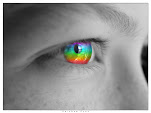I just finished a fascinating book called “The Gettysburg Gospel” by Gabor Boritt. It recounts the situation of Gettysburg post the battle and before and after Lincoln's speech. He postulates just when Lincoln wrote his speech (and the pretty little story of him writing it in an hour or two of inspiration on the train is most likely false). He also recounts how the speech was received at the time, as well as outlining the somewhat mythical proportions it has taken on today.
This was an extremely fascinating book to me. I'm not an American Civil War history buff. I tend toward the colonization of the American West and World War Two, so I came in to this book with all of the myths firmly entrenched in my mind. Believe me, I learned a lot. For instance, Lincoln's speech was largely ignored until 20 or so years later. There were some dry spots in the book. I wasn't particularly interested interested in the minor changes in Lincoln's text, and I also wasn't all that interested in the differences between what he wrote and what the newspapers reported. One or two was interesting, but more than that and I became a little bored by it.
My favorite part of the book was reading it right now in the history of America. I read again about how black people were treated in America. Yes, the Emancipation Proclamation had been read, and yet people largely ignored it. Yes, the black people were free, but that didn't mean that their quality of life had gotten any better. We know all of this, but somehow it hit home to me again just how bad it was. Even in the North, where they were supposed to be all for this, they mostly didn't care or didn't want it to change. In cleaning up Gettysburg after the battle (where the town was left with 10,000 dead and 25,000 wounded to care for) the black people were given the least pleasant jobs—and there were some pretty unpleasant jobs involved in cleaning up after this battle. The American people stepped up—which is a subject for another post—but the blacks, as was normal, didn't get any credit.
When the Gettysburg Address gradually began to gain popularity in the late 1800's, the famous phrase “all men are created equal” still only applied to white people. In an effort to weld a badly divided nation into a whole, the slavery issue was largely ignored so that the South could feel alright about coming back into the nation. Sure, they had to pay their “slaves” now, but the treatment of the black people and the feelings about the black people did not change, and, as we know, didn't change for almost 100 years.
I'm not naive enough to think that the problem is wholly solved. Hatred is taught in the home and can run on and on for generations in spite of all the evidence that prejudice is silly that we can see around us. However, in my country on Tuesday I saw a miracle. I saw evidence of years of hate slowly being erased. For the first time, the majority of our country looked at a man and saw his credentials before they saw his color. Less than 50 years ago he would have been ignored at best. Less than 50 years ago he would have probably not even been able to get in to some of those fancy schools he attended, let alone teach at them.
And yet, on Tuesday, Barack Obama, a black man, became President of the United States of America.
Anyone who says miracles do not happen is not paying attention.


I totally agree. It's heartening to see that even people who are very against Obama's politics still recognize the miracle of his election and the positive things it says about us as a nation.
The book sounds interesting. I adore Lincoln. I'll have to put it on my list.
I totally agree. Dissing Obama is anti-American. And just plain wrong.
Lincoln is my hero. Visiting his monument was a spiritual experience.
I second Melanie J and Charrette. This is very well said, lady.
I love your last line. :) I love the progress our country has made-- at least in this one area-- in the time since Lincoln spoke those words. I love that America has proven herself to be a land of opportunity. :)
It's a miracle indeed. =)